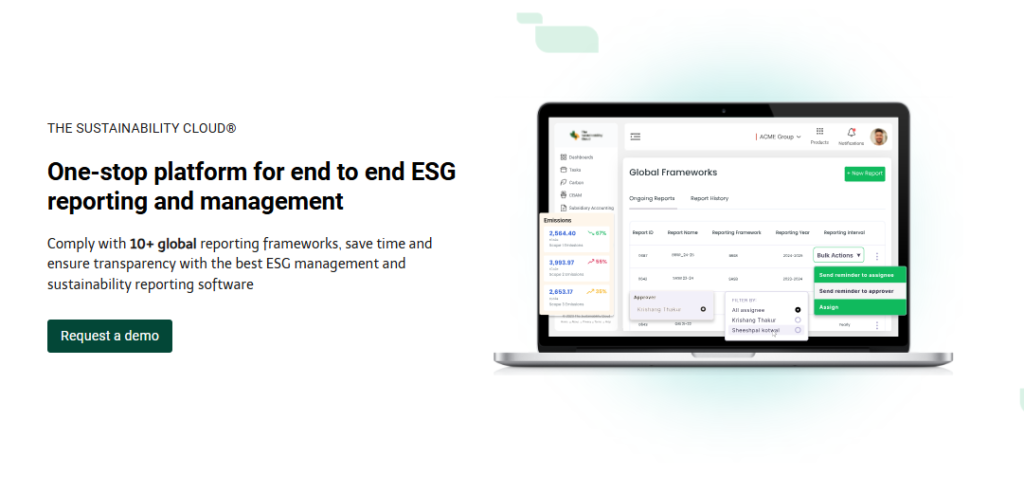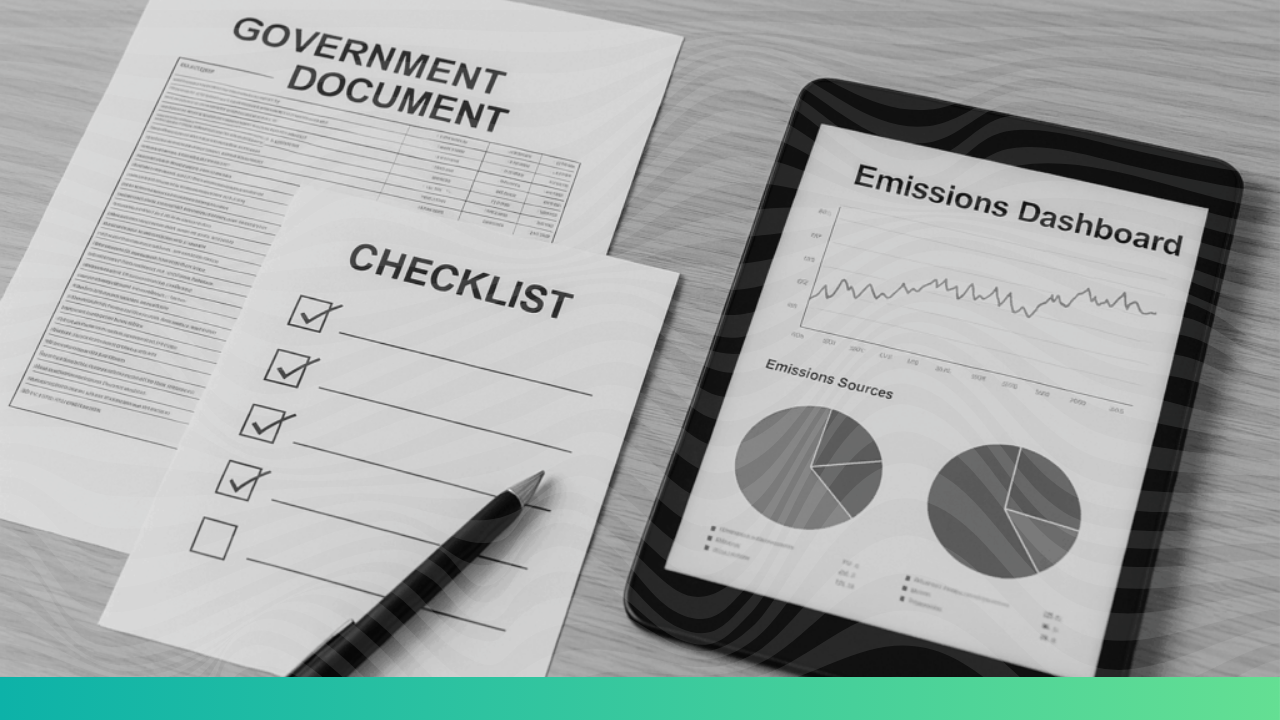ESG Management Software has been gaining unprecedented significance over the past few years. The surge in climate policies and regulations also means increasing demand for ESG (Environmental, Social and Governance) reporting platforms in India and abroad. Currently, more than 82% of investors and CEOs believe integrating metrics into regular corporate reporting is necessary. Moreover, the global ESG assets are expected to exceed $53 trillion by 2025. Consequently, companies turning to effective reporting must consider several factors while deciding on any specialised management software.
In this blog, we examine 6 features that every CSO must keep in mind when selecting a reporting tool.
What is ESG software?
ESG software helps organisations efficiently track, monitor, collect, and audit vast amounts of data across environmental, social, and governance dimensions. It enables seamless data aggregation from multiple departments, offering actionable insights and simplifying the reporting process.
Companies undertake ESG reporting to transparently disclose their environmental, social, and governance metrics. However, managing extensive data can be complex, often requiring coordination across various organisational units. A robust digital ESG reporting solution is essential to streamline this process, ensuring accuracy and compliance.

What are the benefits of ESG reporting?
Adhering to the ESG framework can result in many advantages for businesses and investors. Here is a look at some benefits of effective management tool:
- Attracting investors
- Timely compliances
- Better decision-making process
- Improved brand reputation
- Mitigating financial risks
- Innovation for greater economic outcomes
Top must-have features for an ESG reporting tool
1.Data collection
ESG involves massive data gathering from multiple sources, activities, departments and data points to ensure proper reporting. For instance, companies have to collect data from around 12,000 data points under the EU’s CSRD. Gathering, processing, managing and compiling such high levels of data can be a time-consuming and complicated activity. Data processing and organising them in specific templates and formats can be tedious if done on an Excel Sheet. Hence, digital software must be deployed.
2.Real-time tracking
The software must be able to analyse the data in real-time for organisations to be able to make informed decisions quickly and resolve any issues. Software that offers real-time dashboards and performance metrics helps companies in quicker resolution of challenges. This feature helps companies stay up-to-date with insights.
3.Compliance with regulations
The software must be adaptive and updated from time to time, ensuring integration of all the updates in the ESG rules, regulations, and guidelines. This ensures keeping the ESG reporting tool up-to-date with all the requirements and guidelines. Furthermore, its ability to integrate different reporting templates is an added advantage. For instance, BRSR guidelines keep getting updated and having a tool that can ensure smoother compliance can be critical.
4.Data security
ESG is primarily about effective data management. Features such as protection against data breaches, encryption, and cyber-security make the reporting smoother.
5.Integration
The reporting landscape is continually evolving, with new regulations and guidelines being introduced regularly. Additionally, advancements in technology require organisations to adapt swiftly. To ensure seamless data management, it is critical for any software to integrate effectively with existing business systems. A solution that offers compatibility with an organisation’s technical infrastructure is highly desirable for streamlined operations and compliance.
6.Scalability
The purpose of scalability is that the software is able to handle massive amounts of data as the operations of the organisation grows. Companies need software that is scalable and flexible to adapt to newer compliances and guidelines. Software must be able to handle a lot of data in different formats from multiple sources.
Why choose TSC NetZero’s ESG reporting tool?
TSC NetZero is a comprehensive, end-to-end platform designed to streamline ESG reporting and management for businesses. By integrating multiple ESG management frameworks it empowers organisations to measure and track performance, consolidate environmental data, and gain actionable insights—all within a single, centralised platform. TSC NetZero enhances climate action by fostering collaboration among teams and stakeholders across the value chain, ensuring alignment and accountability.
With a strong focus on data security and regulatory compliance, TSC NetZero supports organisations throughout their compliance journey with its suite of specialised products: TSC NetZero, TSC Water, TSC Energy, and TSC Enviro. This robust platform equips enterprises to unify climate data, drive sustainable practices, and achieve measurable environmental goals efficiently.




